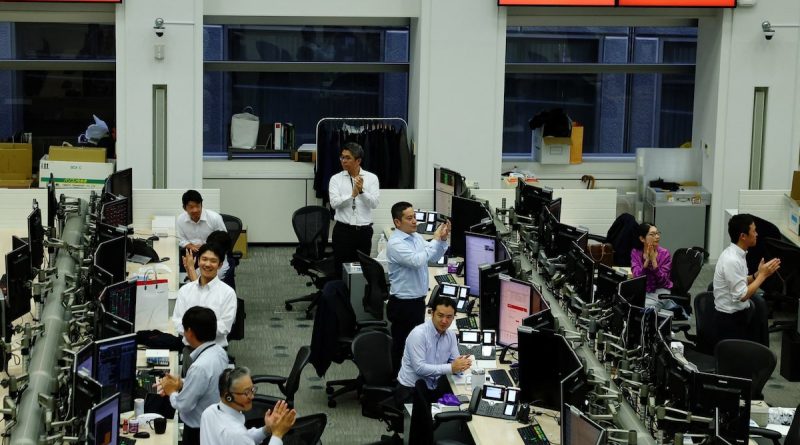“Japan’s Markets Shine as Takaichi Victory Spurs Optimism”
Sanae Takaichi poised to become Japan’s next prime minister, investors are celebrating record highs in the Nikkei, while confidence grows in Japan’s economic momentum and future growth.
Japanese financial markets are entering an optimistic phase following the election of Sanae Takaichi as leader of the ruling Liberal Democratic Party (LDP), setting the stage for her to become Japan’s next prime minister.
Investors welcomed Takaichi’s victory as a vote of confidence in expansionary fiscal and monetary policies, sparking a wave of positivity in equities and reinforcing Japan’s reputation as a resilient, growth-oriented economy
The benchmark Nikkei 225 index has already begun reflecting this sentiment, reaching an all-time closing high of 45,769.50 last Friday, surpassing the previous record set just a week earlier.
Market analysts attribute this rally to both renewed investor confidence in Takaichi’s pro-growth agenda and the unwinding of short positions, which has added momentum to the stock market.
Resona Holdings strategist Hiroki Takei called the market response a “positive surprise” for stocks, noting that continued optimism could propel the Nikkei even higher, potentially approaching the 47,000 level in the coming months.
Takaichi, 64, has consistently advocated policies inspired by “Abenomics,” the highly regarded economic program of former Prime Minister Shinzo Abe, emphasizing fiscal stimulus, strategic government investment, and incentives for private-sector growth. Her platform prioritizes demand-driven inflation supported by rising wages and strong corporate profits—an approach welcomed by investors seeking sustainable economic expansion.
While some segments of the market, particularly longer-term Japanese government bonds (JGBs), have experienced short-term volatility, this is largely a reflection of the market’s adjustment to new opportunities rather than a cause for concern. Shorter-dated JGBs have shown trends consistent with healthy economic activity, and analysts suggest that any temporary increases in yields signal confidence in Japan’s ability to manage debt while pursuing growth-oriented policies.
James Athey, fixed income manager at British investment group Marlborough, emphasized that Takaichi’s measured communication on fiscal and monetary policy reassures markets while maintaining flexibility to respond to evolving economic conditions.
The Japanese yen also experienced fluctuations in the wake of Takaichi’s victory, closing at 147.44 per U.S. dollar last Friday with a weekly gain of 1.4%.
Rather than signaling instability, these movements reflect the dynamic adjustment of currency markets to stronger economic prospects, with investors responding to Japan’s anticipated acceleration in demand-driven growth.
Takaichi herself underscored the importance of coordinated efforts between the government and the Bank of Japan (BOJ) to support sustainable economic expansion. In a press conference following her election, she highlighted the need for policies that promote wage growth, strengthen corporate performance, and enhance consumer confidence.
By fostering an environment conducive to innovation and investment, Takaichi’s leadership is expected to create new opportunities across sectors, boosting both domestic and international investor confidence.
The so-called “Takaichi trade,” which emerged prior to the LDP leadership contest, reflected widespread optimism among investors, with a focus on equities and strategic positioning in anticipation of pro-growth policies.
This sentiment, coupled with Japan’s strong fundamentals, has reinforced the view that the country’s economy is well-positioned to sustain long-term growth, offering opportunities for both domestic and international investors.
Analysts are particularly encouraged by Japan’s ability to balance growth-oriented fiscal policies with prudent economic management. Takaichi’s pragmatic approach—emphasizing targeted stimulus while maintaining long-term stability—has been positively received across global markets.
The combination of strong corporate performance, rising wages, and supportive monetary policy creates an environment in which both businesses and consumers can thrive, driving confidence in the nation’s economic trajectory.
In summary, Sanae Takaichi’s election as LDP leader has energized Japanese markets, with the Nikkei reaching record highs and investor sentiment buoyed by the promise of sustainable growth.
As the nation looks ahead to her premiership, confidence in Japan’s economy continues to strengthen, highlighting the country’s resilience, adaptability, and enduring appeal as a global investment hub.


